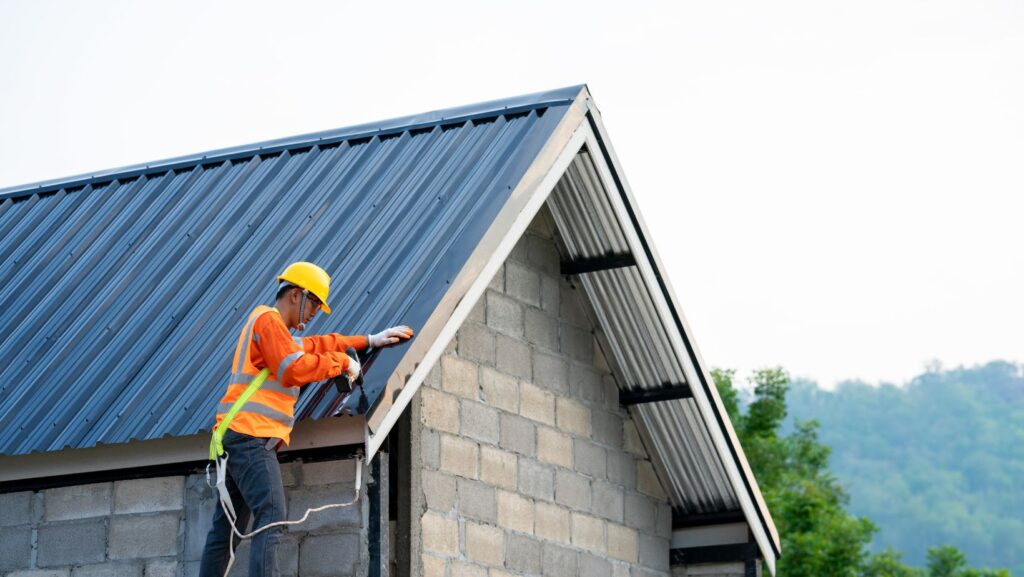
The realm of roofing materials has long been dominated by conventional options like asphalt shingles, clay tiles, and wood shakes. Yet, as environmental considerations and durability become more pivotal in construction decisions, metal roofing is steadily rising to prominence. This surge in popularity isn’t just a trend; it’s a shift towards sustainability, efficiency, and longevity. In this detailed overview, we aim to explore the diverse types of metal roofing materials available, offering insights into their unique advantages, applications, and what sets them apart in the vast landscape of roofing options.
Understanding Metal Roofing
Metal roofing stands out in the construction industry for its unparalleled durability, aesthetic versatility, and environmental benefits. Unlike traditional materials, metal roofs can withstand severe weather conditions, from heavy snowfall to high winds, without compromising their integrity. Additionally, metal roofs offer energy efficiency by reflecting solar radiant heat, reducing cooling costs in warmer climates. When selecting a metal roofing material, considerations such as local climate, architectural style, and budget play a crucial role in determining the best fit for your project.
Steel Roofing
Steel, an alloy made primarily of iron and carbon, is the most commonly used metal roofing material. Its popularity stems from its strength, durability, and cost-effectiveness. Steel roofing comes in several types, including galvanized (coated with a layer of zinc for corrosion resistance), galvalume (coated with a mixture of aluminum, zinc, and silicon for enhanced durability), and weathering steel (designed to develop a rust-like appearance that protects the steel from further corrosion). Each type offers distinct advantages, making steel an adaptable choice for various roofing projects.
Despite its many benefits, steel roofing does have drawbacks, such as susceptibility to corrosion if the protective coating is damaged. It’s also heavier than other metal roofing materials, which may require additional structural support. However, its longevity and the wide range of finishes available make steel a versatile and economical choice for many homeowners and businesses.
Aluminum Roofing
Aluminum roofing shines in coastal environments, where salt spray can accelerate corrosion in less resilient materials. Lightweight yet strong, aluminum roofs are known for their corrosion resistance, making them an ideal choice for areas prone to harsh weather conditions. Additionally, aluminum’s natural ability to reflect heat aids in energy efficiency, keeping buildings cooler and reducing energy costs.
The main considerations when choosing aluminum roofing include its higher cost compared to steel and its somewhat softer nature, which may dent more easily during hailstorms or when walked on. However, for those prioritizing longevity, low maintenance, and environmental sustainability, aluminum offers a compelling roofing solution.
Copper Roofing
Copper roofing is prized for its exceptional beauty and longevity, with some copper roofs lasting over a century. Over time, copper develops a unique green patina that not only adds character but also provides additional protection against corrosion. This material’s durability, resistance to fire, and minimal maintenance requirements make it a prestigious choice for high-end residential and commercial projects.
The primary downside of copper roofing is its cost, which is significantly higher than other metal roofing materials. However, for those looking to make a long-term investment in their property’s aesthetic appeal and structural integrity, copper is an unparalleled choice.
Zinc Roofing
Zinc is another high-end metal roofing option known for its durability, eco-friendliness, and aesthetic flexibility. One of zinc’s most remarkable properties is its ability to “heal” scratches over time, thanks to its protective patina. This self-healing capability, combined with excellent corrosion resistance and recyclability, makes zinc a sustainable choice for roofing.
While zinc roofing is more expensive upfront, its longevity and low maintenance needs offset the initial investment over time. Its ability to be easily shaped also makes it a favorite among architects for unique, custom-designed roofs.
Tin Roofing
The term “tin roofing” is a misnomer; what was historically referred to as tin roofing is actually terneplate, a steel sheet coated with a tin alloy. Today, modern “tin” roofs are more likely to be made of coated steel or aluminum. Though not as common as other metal roofing materials, these coatings offer improved durability and resistance to corrosion, making them a viable option for certain applications.
When considering a “tin” roof today, it’s important to understand the specific materials and coatings being used, as the performance and durability will vary. These options can provide a cost-effective solution for those seeking the benefits of metal roofing without the higher price tag of premium materials like copper or zinc.
Specialty Metal Roofing Materials
Beyond the more common types of metal roofing, there are specialty materials like titanium and stainless steel, which are used in specific architectural contexts. Titanium roofing offers extreme durability and corrosion resistance, making it suitable for harsh environmental conditions. Stainless steel, known for its sleek appearance and exceptional strength, is another premium option that resists corrosion and staining.
These specialty materials are typically chosen for their unique properties, such as resistance to extreme temperatures or for their distinct aesthetic appeal. While not as widely used due to their higher cost, they represent the cutting edge of metal roofing technology and design.
Choosing the Right Metal Roofing Material
Selecting the appropriate metal roofing material for your project involves balancing factors such as cost, appearance, longevity, and the specific demands of your local climate. It’s essential to consider the long-term benefits, including energy savings, maintenance requirements, and the potential increase in property value. Consulting with a professional roofing contractor who has experience with metal roofing can provide valuable insights and help you make an informed decision.
Metal roofing offers a versatile, durable, and energy-efficient option for both residential and commercial buildings. With a variety of materials available, each offering its own set of benefits and considerations, property owners can find a solution that meets their specific needs and preferences. Whether you’re drawn to the longevity and elegance of copper, the corrosion resistance of aluminum, or the cost-effectiveness of steel, there’s a metal roofing material that’s right for your project.
For those considering metal roofing, Shield Roofing is your trusted partner. With expertise in a range of metal roofing materials, we can help you navigate the options and select the best solution for your property. Contact Shield Roofing today to discuss your roofing needs and discover how metal roofing can enhance the beauty, durability, and efficiency of your building.
